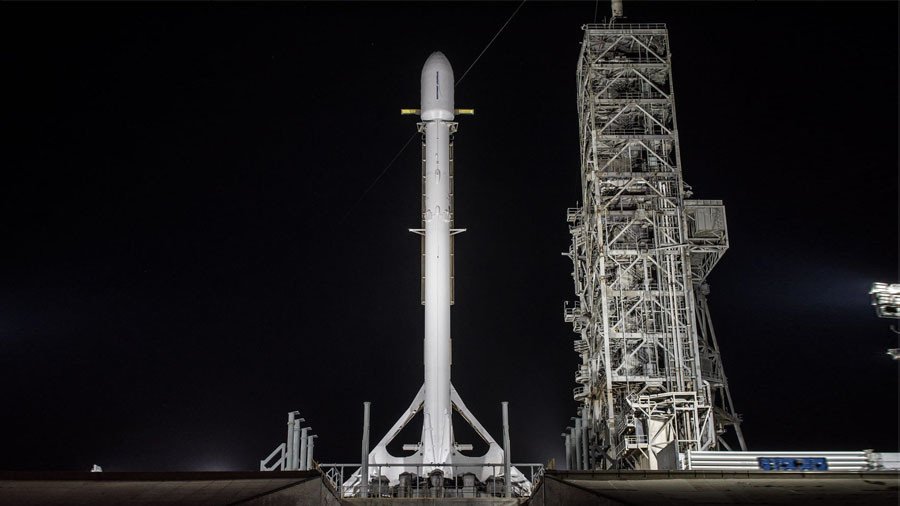SpaceX pulls plug on top-secret US govt payload over mystery safety fears

SpaceX has scrapped the launch of a top secret US government payload at the 11th hour citing safety concerns raised by another, anonymous, customer. The company has a backup launch window but is unlikely to take unnecessary risks.
The launch was initially planned for a two-hour primary launch window starting at 8pm EST on Thursday at NASA’s Kennedy Space Center on Merritt Island, Florida. The company was due to attempt recovery of the first stage of its Falcon 9 rocket at the LZ-1 landing pad at Cape Canaveral some 15 minutes after launch. A backup launch window was announced before the entire launch was pulled.
“SpaceX has decided to stand down for the Zuma launch and take a closer look at data from recent fairing testing for another customer. Though we have preserved the range opportunity for Friday, November 17, we will take the time we need to complete the data review and will then confirm a new launch date,” the company wrote in an online statement.
Though we’ve preserved the range opportunity for tomorrow, we’ll take the time needed to complete the data review and then confirm a new launch date.
— SpaceX (@SpaceX) November 16, 2017
Fairing is the shielding used to protect satellites during launch and prior to separation, which occurs when the rocket is traveling over four times faster than a speeding bullet, or Mach 10.
SpaceX plans to launch the “restricted payload,” codenamed Zuma, into Low Earth Orbit (LEO) at an altitude of 1,200 miles (2,000km) in future but hasn’t announced a replacement launch date yet.
The launch was commissioned by Northrop Grumman on behalf of the US government aboard SpaceX’s iconic, and reusable, Falcon 9 rocket, which Northrop Grumman says is a “cost effective approach to space access for government missions.”
SpaceX launch: US govt to send mystery payload into orbit (POLL) https://t.co/DMpVmRLXKapic.twitter.com/PUJ6K52Uir
— RT (@RT_com) November 15, 2017
The vast majority of top secret government satellite launches fall under the auspices of the National Reconnaissance Office, part of the US intelligence apparatus, but the NRO typically discloses its space-bound missions, reports SpaceFlight Now.












